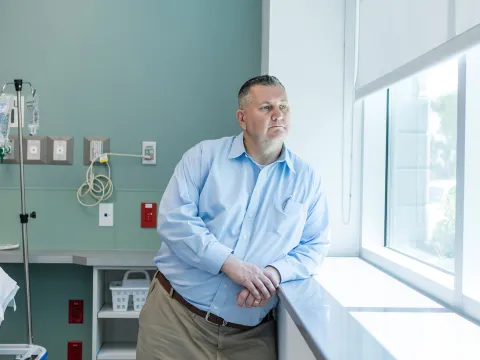- AdventHealth

Choose the health content that’s right for you, and get it delivered right in your inbox.
Sometimes, after a long, hard day at work or school, we want to get in our cars and listen to our favorite tunes. But sometimes, silence can be soothing when you're behind the wheel — and there are health benefits, too.
For some people, spending a drive in silence with nothing but their thoughts can seem impossible. However, this is a great way to practice mindfulness.
We’re here to help explain the benefits of driving in silence and find a new way to prioritize your mental health with mindfulness.
Sometimes, Less Is More
We know that most people lead busy lives filled with deadlines and packed schedules with after-school activities for your little ones or social gatherings. When your day is full, it can make it difficult to find “you time” where you can check in with yourself to see how you’re doing.
It’s easy to get in the car and immediately turn on the radio, a favorite podcast or audiobook. Whether it’s purely out of habit or as a distraction from the day, these media sources can act as a buffer between us and our thoughts — upholding the societal pressure to remain “busy” — when we could be checking in on our mental health.
Being in silence as you drive allows you to sit with your thoughts, emotions and feelings. You may find you’ve been carrying anxiety or stress over an upcoming event and have been suppressing it. Sometimes, less can mean more — spending time in silence allows you to connect with yourself and tend to your emotional needs.
Physical Health Benefits of Driving in Silence
Having dedicated quiet time in the car may provide physical health benefits, including:
- Decreasing your heart rate
- Encouraging mindfulness
- Improving sleep quality
- Lowering blood pressure
- Reducing cortisol
While practicing quiet time in the car has physical benefits, sitting in silence is also a powerful technique for improving mindfulness, which fosters mental and emotional well-being.
What Is Mindfulness?
Our thoughts, emotions and attitudes influence our body, mind and spirit. Mindfulness is the practice of slowing down your thoughts and focusing on the present without expectations of what is to come. Through mindfulness, we may find that our minds are filled with an array of thoughts, some beneficial to our whole health and others not.
Allowing ourselves to take mindful pauses throughout our day lets us tune into our feelings and focus on how our thoughts might affect us. This technique of mindfulness helps us address the health needs of our mind, something that’s far too often overlooked.
How to Incorporate Mindfulness Beyond Driving
While dedicating quiet time behind the wheel can be a healthy practice, there are many other ways to incorporate mindfulness into your everyday life.
A great way to do this is by focusing on your breath. This allows you to slow down and direct all your attention to your body, clearing your head from racing, swirling thoughts. Focusing on the breath is also proven to slow your heart rate and reduce stress. So, not only is this benefiting your mental health, but your physical health, too.
Other ways to incorporate mindfulness in your daily life include:
- Meditating
- Mindful wakeups (focusing on your thoughts, feelings and physical body before distractions come)
- Moving slower throughout your day
- Practicing gratitude
These are just some of many practical ways to incorporate mindfulness into your daily life. Over time, practicing mindfulness will help you calmly manage your thoughts and emotions.
Helping You Quiet Your Mind
At AdventHealth, we care for more than just the body — we treat the mind and spirit, too. Sometimes, you need extra help navigating your mental and emotional health, and that’s OK. Our dedicated behavioral health teams are here to provide you with the compassionate, whole-person care you deserve.
You’re never alone. No matter what season you find yourself in, we’re here with open arms, ready to embrace you for who you are. Visit us here to learn more about our behavioral health care services or to schedule an appointment. Remember, you have what it takes, and we’re proud of you prioritizing your mental health.


